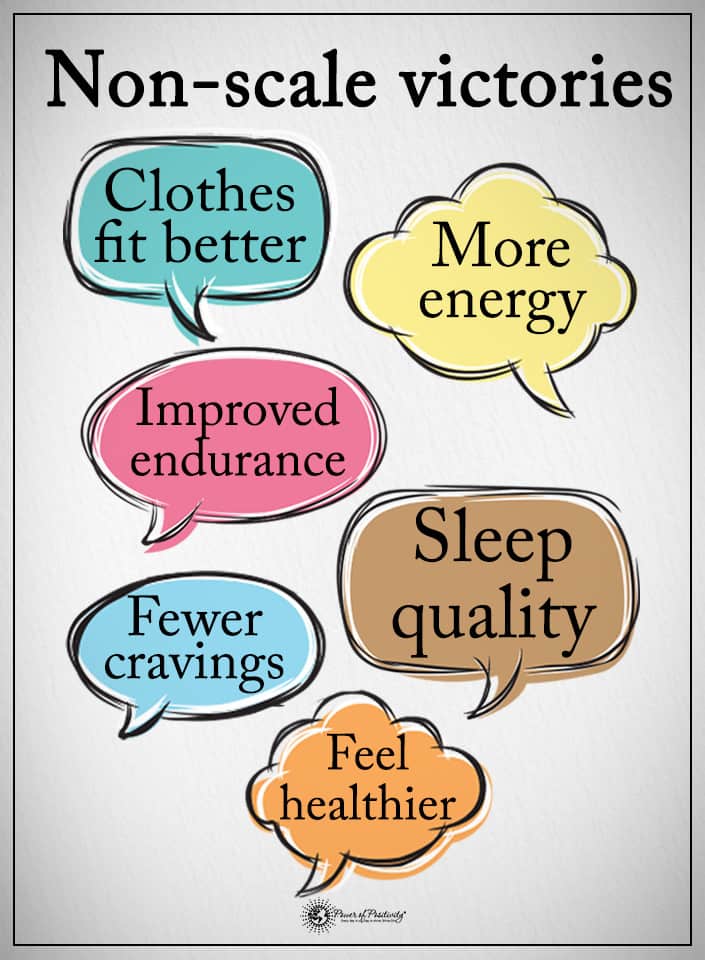Take inspiration from the life-changing lessons I learned from losing weight (120 + pounds).
It’s not easy being a fat kid. It was never hard to put weight on. From the middle of elementary school well into my 20s, losing weight, and then regaining it, was like a rollercoaster. Once I decided to shed that weight that I carried, I took away valuable life lessons that I’d never have experienced if I had not started my life as an overweight child.
In this article, I will share the 20 most valuable lessons I learned during my weight loss journey.
20 Life Lessons Learned from Being Overweight
Here are some words of encouragement if you have an ultimate goal of losing weight.
1 – Respect isn’t free
It’s sad but undeniably true. When you’re in a low place, you’ll find that people are quick to turn their backs without self-compassion. Maybe it’s a fear that you’ll bring them down, or perhaps they just don’t know how to uplift you. But it’s crucial to realize that respect doesn’t come for free if you want it from other people.
When you decide to pursue what you desire, people will respect you for that. When in a state of “woe is me,” you are portraying negative energy that doesn’t garner much praise, attention, or respect.
2 – Don’t take physical activity for granted in losing weight
Our bodies are designed to be on the move—it’s how we survived even to make it as a species today. When you remain complacent, your body will follow suit. In time, your muscles, tendons, and tissues weaken from lack of activity.
The National Institutes of Health (NIH) suggests exercising for at least 30 minutes, three days a week, at least to start. As you become stronger, boost to 45-minute sessions, five days weekly.
Some excellent activities you can try to include are the following:
- Yoga, done from a studio or by following YouTube classes
- Walking with a friend or neighbor each evening
- Swimming or water aerobics
- Bicycling around your neighborhood each day
- Using resistance bands to work muscles that you haven’t used lately
So, get up and get moving. You can take small steps at a time. Start small, gradually working your way up to more significant challenges as you get fitter.
3 – You are stronger than you think
The body’s limitations are purely temporary. When we let our minds expand, we allow the capabilities of our bodies to do the same. It may seem ridiculous to run 100 miles, but people do it because they believe they can.
4 – Release judgment
Do you know how many times I was denied a school date, simply because I was “fat”? I would look my rejector in the eye and ask, “You would date me if I weighed less, wouldn’t you?”
There is far more to any one person than what appears on the surface.
Much like the adage “don’t judge a book by its cover,” it is not up to us to make an assumption simply because of the way we look. There’s a lot of character underneath it all, and you’re doing yourself a disservice not to give someone a chance.
5 – You know less than you think
When I thought I knew everything, I discovered that I knew nothing.
No matter how far you travel on this journey to enlightenment, success, or whatever it is you’re chasing, the road continues. The rabbit hole deepens. Just as the Universe is infinitely expansive, so is the knowledge available to us.
And if you do happen to reach the end of the road of knowledge, there’s a breakthrough right around the corner; you can count on that.
6 – The only limits are the limits you make
Life is full of boundless opportunities to expand, once you believe that expansion is possible. A life of limitation seems fruitless. Live the life you want, without regret or constraints.
7 – The human body is undeniably amazing
The body, also known as our soul’s temple, is an incredible piece of divine engineering. Here are just a few of the incredible superpowers you may not know you had. The following are a few intriguing facts about this machine.
- Nerve impulses travel to and from the brain at 170+ miles per hour.
- The human body creates 300 billion new cells each day.
- You could go without a stomach, spleen, one kidney, and 80% of your intestines – and still be alive.
When you realize the real power you have just by being in this physical transportation device, it becomes a whole lot easier to think about what you think you can do, versus what you know you can do.
8 – It’s ok to laugh
Although I used laughter as a self-defence mechanism, I learned that humor could carry me through almost any situation. If you fall on your tail the first time you try yoga, laugh it off. You will improve your skills in time.
9 – Don’t worry about what others think
You determine your self-worth; that is not for others to decide for you. Lift your head high, be proud of yourself. You committed to losing this weight, now press forward with determination. The little changes you make will add up to your ultimate success in the long run.
10 – You are your only roadblock to losing weight
Get out of your way. Do you doubt your ability to make long-lasting good food choices? Or, do you anticipate giving up on your workouts? Erase those negative beliefs from your mind. Start over with a fresh slate and focus on what you can and will do instead.
11 – Surround yourself with people who inspire you
You are only as good as the company you keep. If you remain in the presence of a person who weighs you down, you will not likely reach your wellness goals. However, surrounding yourself with positive and supportive people will uplift you. That support, ultimately, will help you get across the goal line at the end of your weight loss journey.
12 – You’re not a superhero
Few people can bring about sweeping changes in a single instant like a superhero. Weight loss takes sustained focus, commitment, and determination.
Don’t let the social media instant success stories sway you; they don’t represent reality. Instead, they are time-lapsed images that show a progression, and then shamelessly plug for likes and social shares.
13 – Some things never change
Each person has specific innate personality traits. Some of these traits are positive, while still others are detrimental to our weight loss journeys. The following habits stem from our personalities:
- Procrastination versus facing challenges head-on
- Giving up easily versus finding a way to overcome any roadblocks
- Becoming distracted versus completing tasks
You cannot change these innate personality traits. However, you can identify your traits and develop good habits by becoming mindful of them. Thus, you can become proactive in finding ways to work around the things that distract you from your success.
14 – Treat your body like a single cell
Although you know that billions of cells build your physical body, treat it as if it were one single organism. What does this mean?
If you had only one cell, you would be apt to nourish it well. So if you consume foods and drinks that are adverse to your weight loss regularly, you are damaging those cells. Fuel your body for maximum wellness, which will translate to sustainable health.
15 – Acknowledge a higher power at work in your life
It matters not what Higher Power you subscribe to–God, Jesus, Buddha, or the Universe. Your faith is a powerful tool throughout your efforts at reclaiming your well-being and losing weight.
Pray, read devotionals, commune with nature, or recite mantras. It doesn’t matter what rituals you follow; feed your spiritual being to enjoy a holistic approach to healing.
16 – You’ve got to believe in losing weight
To succeed, you must believe. Have faith in your ability to do the following:
- Make smart food choices
- Exercise your physical body
- Relax your mind
- Feed your soul
You must believe you can accomplish each of these things. If you don’t believe in yourself, how can you expect others to support your journey?
Remember, you must believe it to receive it!
17 – Remember why you are losing weight
I struggled with the reality of why I wanted to lose weight, and I know others also feel the pressure of this challenge.
You must identify why losing weight is of utmost importance in your life. This reasoning varies from one person to another, and that diversity in thinking is a beautiful thing.
Perhaps you want to fit into a revenge dress before your class reunion. Cool! Or, you might want to avoid genetic predispositions to heart attacks or diabetes, and you commit to living longer. Also…great! Still, another person might want to become a positive role model for their children. Again, wonderful!
Each one of us must determine why. Once you reflect, write it down, tape it on your fridge, or put it on your phone’s home screen so you can see a daily reminder.
18 – Accept what is
Starting a transformational experience means first accepting the reality of what is. That number on the scale or size tag inside your pants is your current reality.
However, once you receive it, you will be able to change it! So be honest with yourself, accept the hand you currently hold, and then start shuffling up the deck by making those necessary changes.
19 – There’s nothing wrong with talking about problems
Some struggle with being overweight because of mindset or a damaged psyche. Like physical changes, you can make improvements in your feelings and attitudes about your relationship with food. This step is key in losing weight if you have emotional struggles.
If you are an emotional eater, hide between your size as a suit of armour, or cannot get into the mind frame of weight loss, talk with a professional. A counsellor can help you work through these problems and help you correct course by identifying the causes of your feelings and helping you build self-confidence.
20 – Love everyone
Let us never underestimate the power of loving everyone around you. Love is the embodiment of positivity. Through that positivity, you will have the faith to move mountains–or to lose weight.
Final Thoughts on the Life Lessons I Learned by Losing Weight
I lost over 120 pounds several years ago, and that transformation was much more than just physical. The journey was a profound exploration of self-discovery, resilience, and the power of the human spirit. Each pound shed represented not just a step closer to a healthier body, but also a victory over self-doubt, societal judgments, and the limitations I had unknowingly imposed on myself.
The lessons I learned through this weight loss journey have shaped the person I am today. I’ve realized that respect isn’t something that’s given freely; it’s earned through our actions, perseverance, and the energy we put into the world. I learned that our strength, both mental and physical, often far exceeds what we imagine. Releasing judgment, especially of ourselves, was a key step in allowing me to grow beyond the constraints of past insecurities.
Perhaps one of the most profound lessons was understanding that life’s only true limits are the ones we set for ourselves. Once I removed those self-imposed barriers, I began to see endless possibilities, not just in my weight loss, but in every aspect of life. The human body, a marvel of nature, showed me that with care, attention, and the right mindset, we can achieve feats we never thought possible.






















